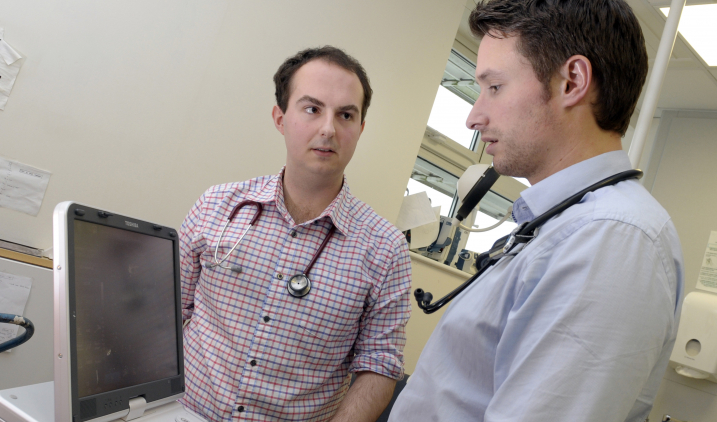what are palliative care doctors trained to do?
Palliative medicine
Doctors in palliative medicine provide holistic, quality-of-life care of patients with serious, advanced progressive illnesses and for whom curative treatment is no longer possible.
This page provides useful data on the nature of the piece of work, the mutual procedures/interventions, sub-specialties and other roles that may involvement you.

Nature of the piece of work
Care of dying patients and those shut to them is key to this specialty. Doctors in palliative medicine also provide supportive care at before stages in an disease, aslope active treatments and interventions.
While about medical professionals accept responsibility for practiced palliative and end of life care, palliative medicine physicians provide support, guidance and expertise to other teams especially in complex situations. They have an important role in the teaching of other professionals and for ensuring high standards of care in the organisations for which they work.
They encounter a range of diagnoses, although most referrals will be for patients with progressing or avant-garde cancer. An increasing proportion accept other progressing or stop phase conditions including centre failure, renal failure, advanced chronic obstructive pulmonary disease (COPD) and neurological conditions.
An in depth knowledge of the pathology and management of these weather condition is essential and forms office of the curriculum in specialist training. Some doctors will develop a sub-specialty interest depending on their post and location. In general, palliative treat patients younger than 18 years is provided through paediatric palliative care specialists.
In some intendance settings, such as specialist inpatient units in hospitals or hospices, the palliative intendance physician is responsible for the medical management of the patient. Notwithstanding in the customs and most hospital settings, the role is one of working alongside different teams and professionals with the GP or another specialist being direct responsible for the intendance.
They offer care that:
- strives to achieve the best quality of life for the patient for every bit long equally possible
- involves managing and anticipating pain and other symptoms
- addresses the psychological, social and spiritual needs of the patient
- facilitates multi-professional support in order to provide joined-up care across care boundaries, enabling care at domicile and fewer avoidable admissions towards the terminate of life
- supports anticipatory planning with patients and professionals including advance planning in the terminal year of life
- supports end of life care that meets the needs and wishes of the individual and family
- supports the family and significant others during the patient'due south illness and their bereavement
Common procedures/interventions
The tools of the specialty are communication, clinical assessment, decision-making and in depth knowledge of pharmacology.
Some physicians will undertake paracentesis (drawing off fluid form a natural cavity of the trunk) in hospice or home settings under guidance of portable ultrasound (very loftier frequency audio waves). They will be familiar with specialist pain techniques including management of epidural infusions (a local anaesthetic process for blocking pain) but this would be in conjunction with a hurting specialist.
Where do doctors in palliative care piece of work?
Consultants often work across hospice, community and infirmary settings but would be based in one of these. At that place are posts exclusively based in a hospital, working with the multi-professional palliative intendance team across all wards and clinics which may include seeing patients on medical assessment units or with the acute oncology team that manages cancerous diseases.
Posts based in a hospice usually include sessions for dwelling visits and/or at the local acute trust. Outpatient clinics may be provided in hospital or hospice settings. Others may be based primarily with a customs palliative care team. Trainees will rotate across all of these to gain different feel. Non-training posts are more than probable to be located in one setting, such as a hospice.
In whatever setting, the office includes provision of palliative care communication to other professionals ofttimes by phone.
Want to learn more?
Find out more about:
- theworking life of someone in palliative medicine
- the entry requirements and preparation and development
- Printer-friendly version
- PDF version
- Login to Bookmark
Other roles that may interest you
- Medical oncology
- General practice (GP)
- Geriatric medicine
- Respiratory medicine
Source: https://www.healthcareers.nhs.uk/explore-roles/doctors/roles-doctors/medicine/palliative-medicine
0 Response to "what are palliative care doctors trained to do?"
Post a Comment